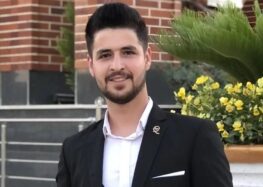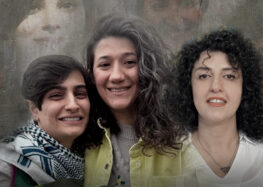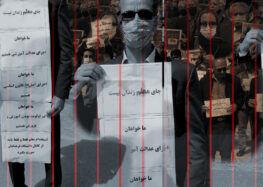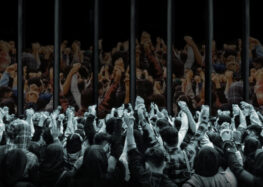Reformist Commentator Calls on Iran’s Government to Reaffirm the People’s Constitutional Right to Protest
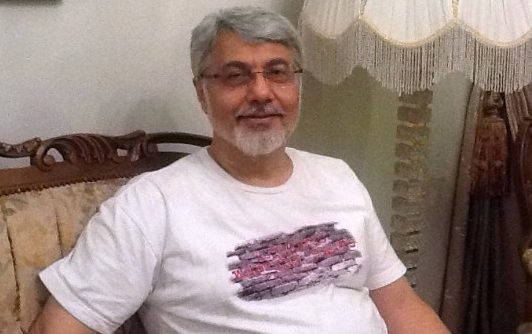
Formerly imprisoned reformist commentator Issa Saharkhiz has called on Iran’s government and lawmakers to reaffirm the people’s constitutional right to protest.
“There have been members of Parliament and government officials who have defended the people’s right to peacefully demonstrate and protest in accordance with the Constitution but only in words,” said Saharkhiz in an interview with the Center for Human Rights in Iran (CHRI) on January 4, 2018.
“If they are really serious about this issue, the Parliament or the government should introduce an emergency bill reaffirming Article 27 of the Constitution, which guarantees the right to legal assembly,” he said.
“Or they should allocate a stadium or some other public space for people to come and freely express their views and demands,” he added
Article 27 states, “Public gatherings and marches may be freely held, provided arms are not carried and that they are not detrimental to the fundamental principles of Islam.”
Since anti-government protests erupted across Iran on December 28, 2017, many officials, including Supreme Leader Ayatollah Ali Khamenei, have condemned the demonstrations as illegal riots directed by foreign powers.
Saharkhiz, 63, who served as the Director for Domestic Media in the Culture and Islamic Guidance Ministry from 1997-99 under President Mohammad Khatami, has written for several reformist publications in the past.
He has previously been arrested on several occasions for criticizing Iranian politicians in interviews with domestic and foreign news outlets as well as via postings on social media.
Most recently, Saharkhiz served 21 months in Evin Prison for the charge of “insulting the judiciary chief and the president” in his commentaries. He has been banned from leaving the country but was released in April 2017.
Saharkhiz expressed concern to CHRI about the safety of protesters detained in the nationwide anti-government demonstrations that began in Iran on December 28, 2017.
At least 25 people have been killed and more than one thousand arrested.
“The state is confronting protesters and throwing them in prison where they are not allowed to contact lawyers or their families. We could have another situation develop like Kahrizak,” he said, referring to a detention center south of Tehran where protesters died under torture during protests in 2009.
He continued: “The authorities are not respecting the people’s right to protest. Families of detainees keep going to Evin Prison but no one answers their questions. Some families have no idea where their children are being held. Parliament should look into this and defend the rights of protesters.”
Added Saharkhiz: “We live in a country with dual centers of power, the weaker one being the government that has very little authority in defending the rights of citizens. When the president travels abroad and answers questions about political prisoners, he says the government cannot interfere, even though he has a duty to implement the Constitution.
“Mr. Rouhani believes that the people have some rights but in Ayatollah Khamenei’s view, all protesters, including droves of unemployed young people who are demanding a more affordable life, are agents of foreign powers,” he said.
On January 2, 2018, Iran’s supreme leader pointed a finger at foreign “enemies,” claiming they had incited the protests.
“In the incidents during the past few days, the enemies of Iran have been using every tool in their possession, including money, weapons, politics and security services to create problems for the Islamic state,” said Khamenei.
Saharkhiz urged President Hassan Rouhani to use his constitutionally sanctioned authority to defend the protesters.
“Hassan Rouhani should be frank and direct with the people,” said Saharkhiz. “He should tell them why he has not been able to fulfill the promises he has made in the past five years, like creating more jobs and boosting the economy.”
“There have been some improvements in the economy but when you look at the protesters, the vast majority are young unemployed people who are seeking their rights and making demands for a better and more secure life,” he added. “More importantly, they want to have a role and say in running the country. The first thing the government can do is a cabinet reshuffle and move economic policies away from austerity toward job creation.”
Continued Saharkhiz: “There is a faction in the ruling establishment that wants to take advantage of the current climate and shut down avenues of expression. They have blocked Telegram and are looking to go further by declaring perhaps a state emergency or toppling the government.”



